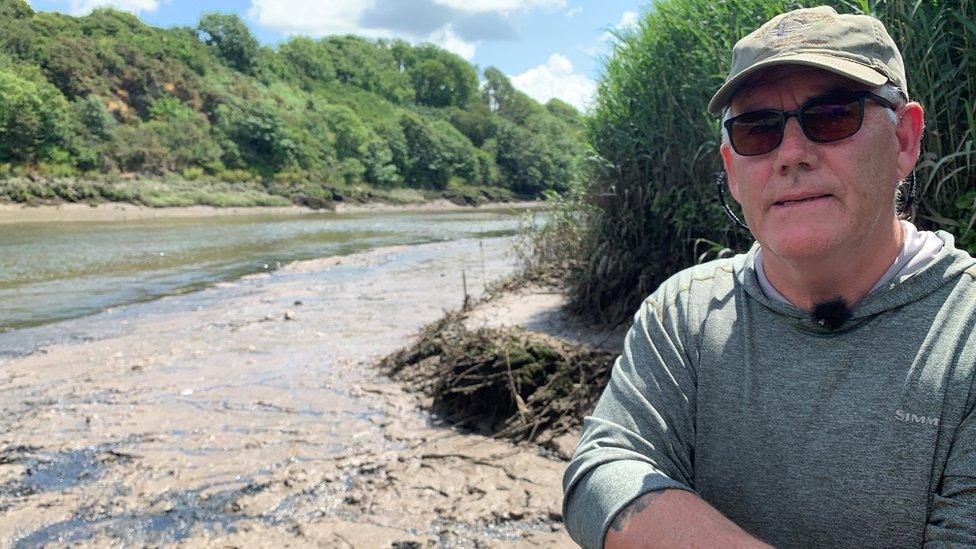Anglers want cull of fish-eating birds
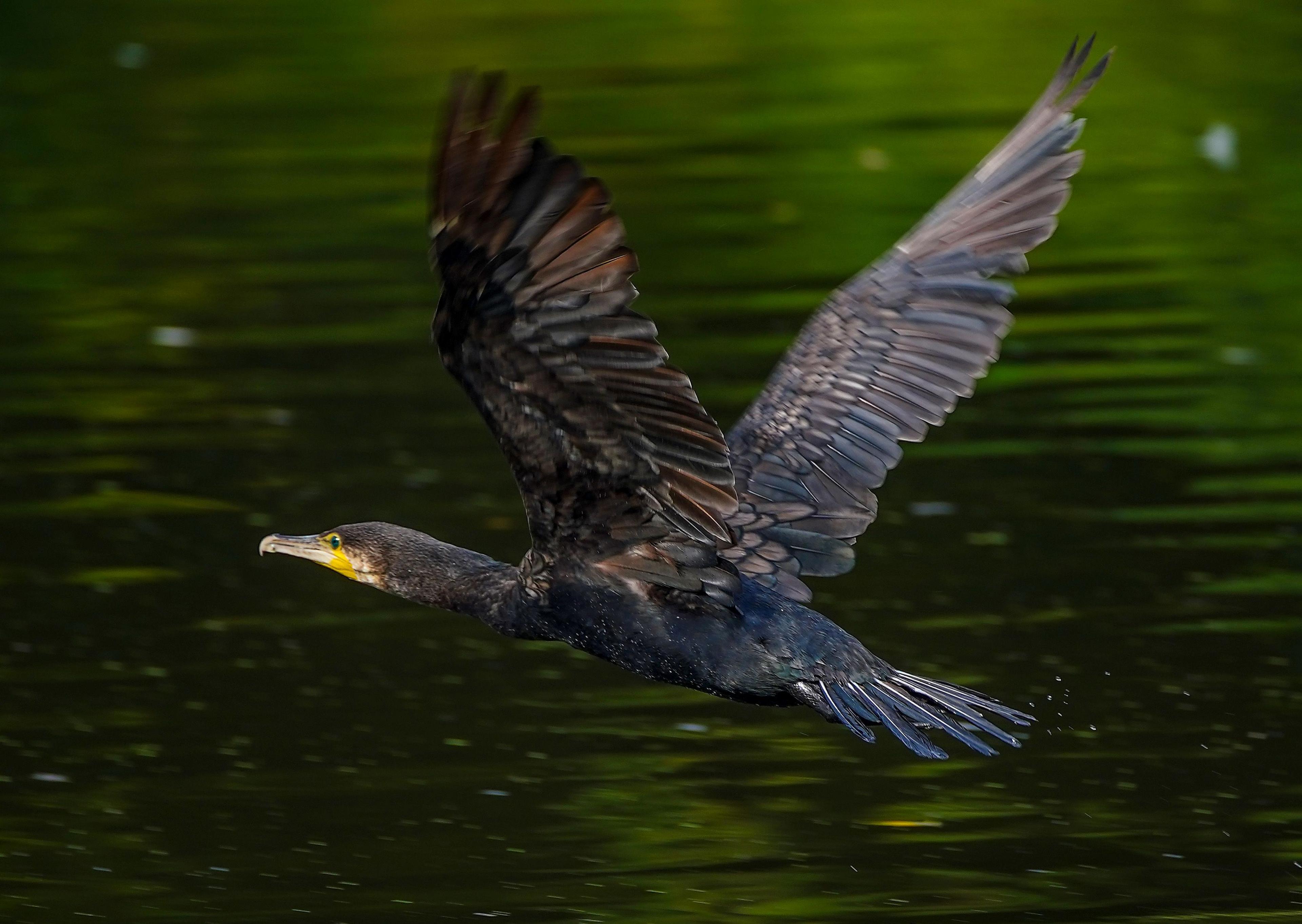
Anglers claim birds such as the cormorant are devastating fish stocks on Welsh rivers
At a glance
More than 2,000 people sign a petition calling for licences to cull fish-eating birds in Wales
Anglers claim cormorants and goosander ducks are devastating stocks in Welsh rivers
Conservationists say the priority should be cleaning polluted rivers
Natural Resources Wales says it is putting a plan in place to examine the issue
- Published
Anglers in Wales are calling for some fish-eating birds to be culled, claiming they are devastating river stocks.
More than 2,000 people have signed a petition demanding more licences are issued by Natural Resources Wales (NRW) to deal with cormorants and goosander ducks.
Both birds are protected species and cannot be killed without permission from NRW, the official Welsh environment body.
It says a plan is in place to assess the impact of fish-eating birds and how they are controlled in Wales.
The petition has been gathered by one of Wales' best known fly fishers, Gwilym Hughes, who has represented Wales internationally in angling competitions.
The former police officer and water bailiff said the numbers of both cormorants and goosanders had risen "dramatically", while fishing stocks - especially those belonging to the salmon family - had declined.
"The problem has existed for a number of years and National Resources Wales hasn't done anything about it," he claimed.
"In Wales now, we've smaller rivers and they are eating stocks in the river."
Mr Hughes said a single goosander could eat between 10 and 30 salmon-type fish in a day.
"Work that out, and it's over 7,000 fish per bird - and there's 20,000 of them in the UK," he said.
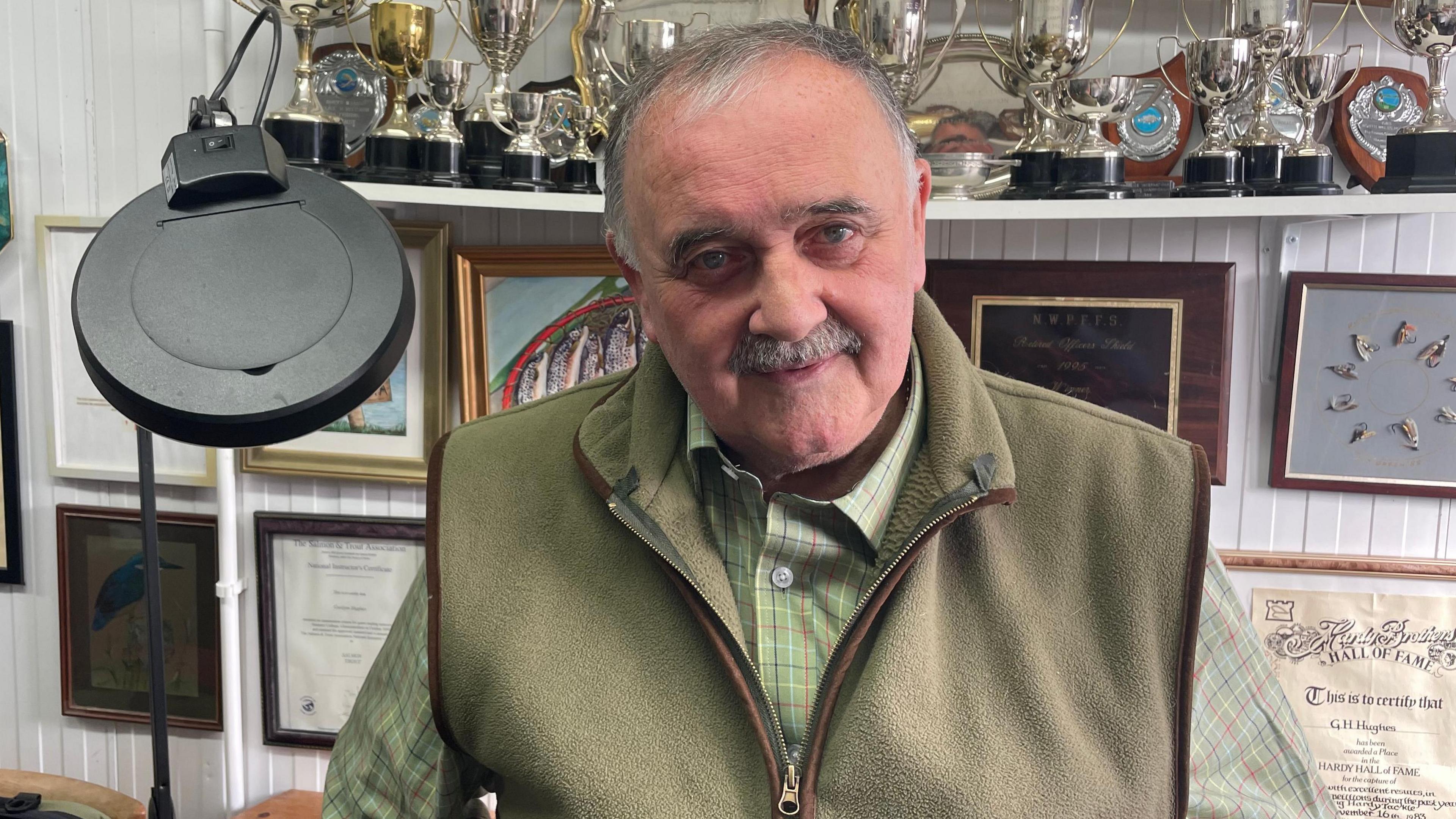
Fly-fisher Gwilym Hughes says he fears for the future of fish stocks in Welsh rivers
But he said the current licence system to cull the bird was "restrictive".
"On the Dyfi (river) system, we're allowed to kill two cormorants and three goosanders in 12 months.
"I think the licences are actually there to protect the avian predators - not to help the fisheries."
The angler said he wanted more general licences issued to fishing clubs and fishery owners to be able to cull the birds if necessary.
Salmon stocks reaching crisis point, report warns
- Published26 July 2022
Last chance to save Wales' rivers?
- Published20 March 2022
Study into climate effects on Atlantic salmon
- Published7 June 2022
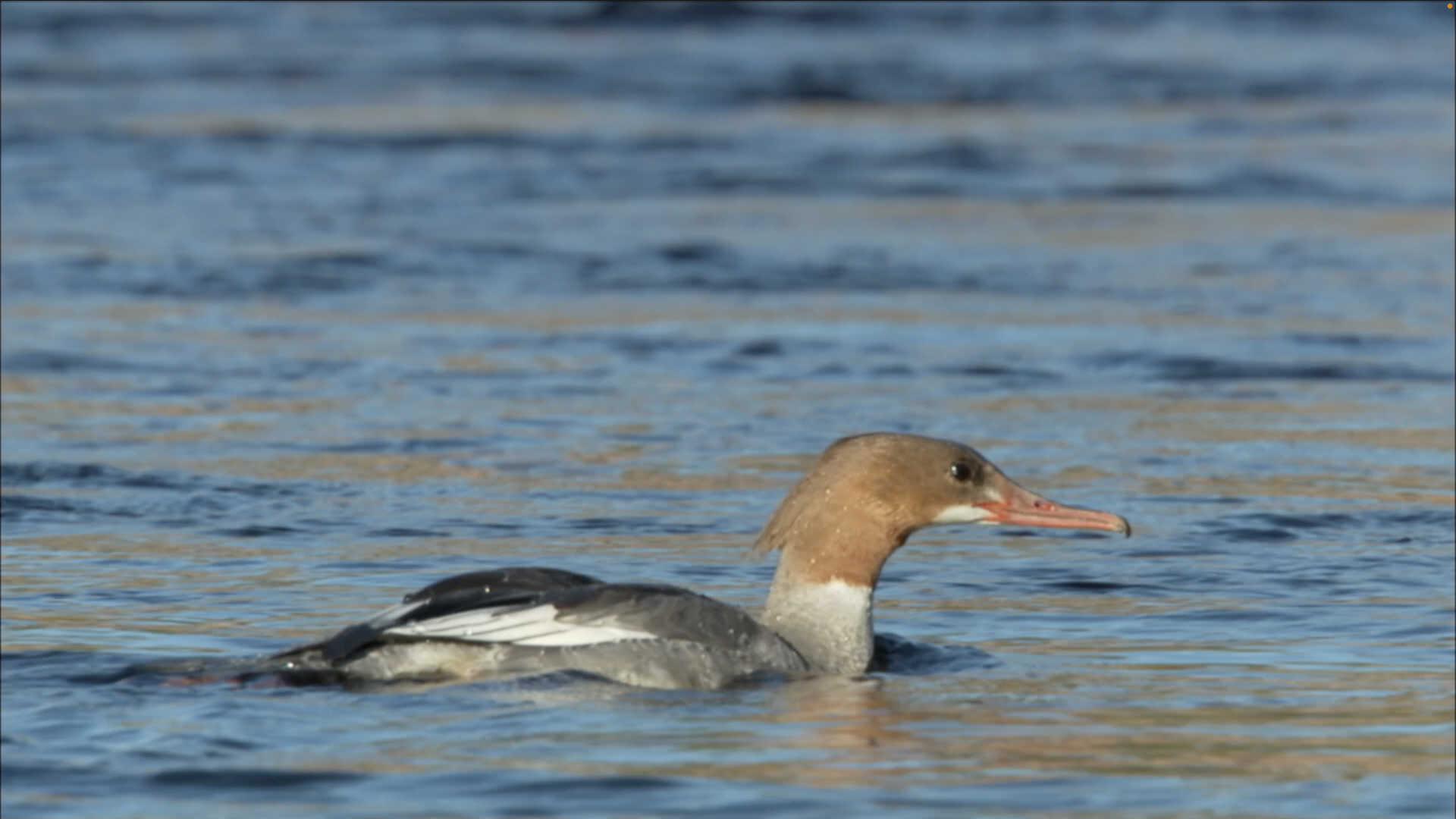
The goosander is now a common sight on Welsh waterways
He said it was not just about fish stocks, and claimed the birds were having an impact on other species, including kingfishers and herons.
"The reality is, because of the competition now, the kingfishers and herons are suffering. What will happen to them when all the food - all the fishes - are gone?
"We have a duty to protect all of them. We're not about killing birds, we're about protecting and keeping a balance in nature, that's all."
The goosander arrived in the UK in the late 1800s. According to the British Trust for Ornithology (BTO), there are about 5,000 breeding pairs in the UK, with a population of at least 15,000 wintering in the UK.
In conservation terms, it is regarded as being in a safe position.
The cormorant is also not under threat, with its population increasing in the UK by 58% since the mid-1990s.
According to the BTO, until the middle of the last century, the cormorant was seen as a coastal bird. However, it has now colonised inland waterways.
With a winter UK population of 65,000, that has brought it into direct conflict with anglers.
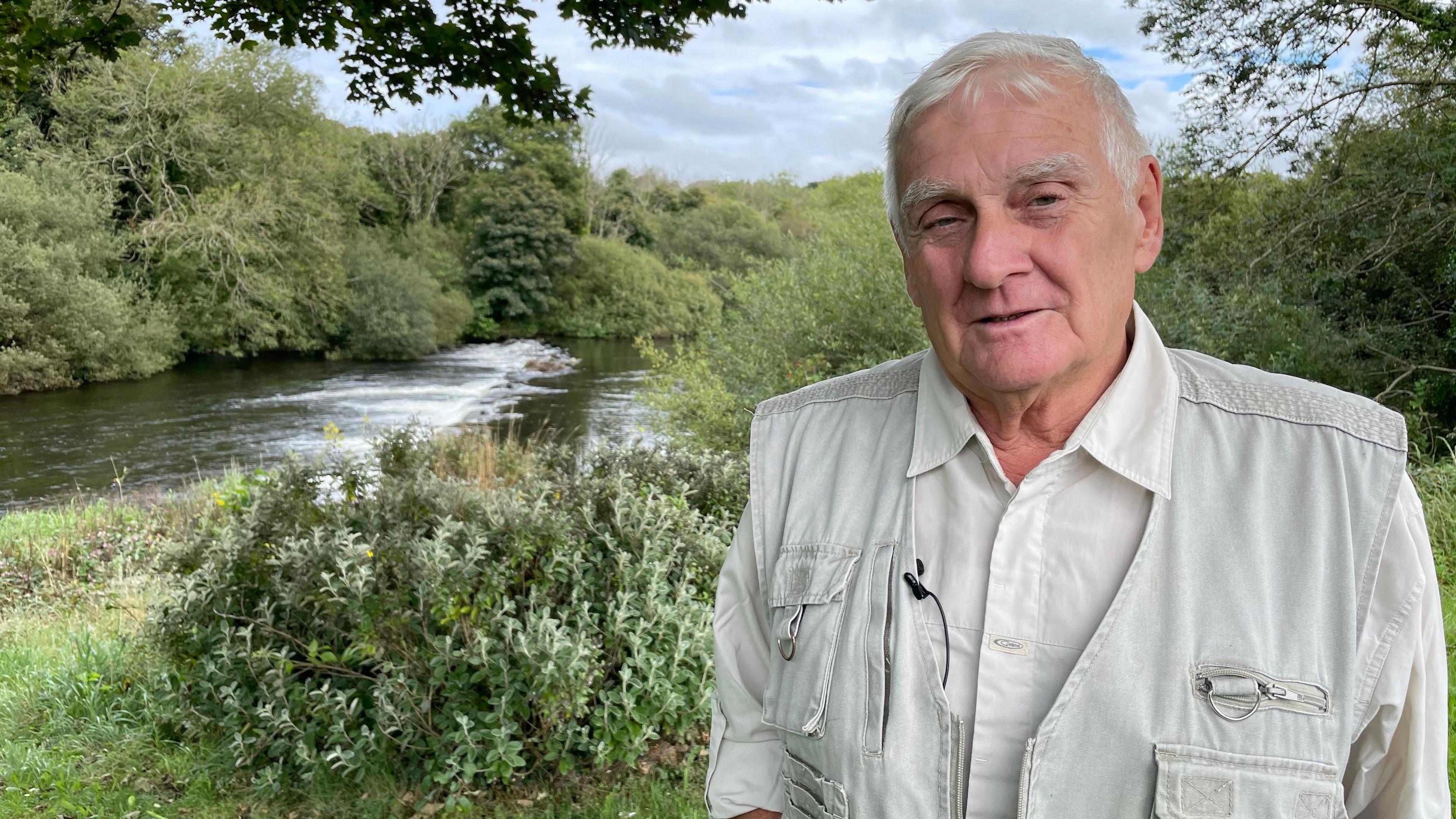
Fishing club secretary Huw Price Hughes says he has seen an increase in both cormorants and goosander, while fish stocks decline
Huw Price Hughes is secretary of the Seiont, Gwyrfai and Llyfni Angling Association, which is known for its fishing on the rivers and lakes around Caernarfon.
He said he did not even know what a goosander was 50 years ago, but now had witnessed up to 30 of the birds on the river when young salmon - known as smolts - were migrating back to the sea.
"These days, we've got goosanders and cormorants on the river, especially when the smolt run is in progress," he said.
"These follow the smolt run down to the sea and they'll go to Caernarfon by the castle, and when the tide is out you can see another 30 or 40 birds there.
"I would assume it affects sea trout stocks and salmon stocks throughout the whole of Wales - not only Wales, but the UK in general."
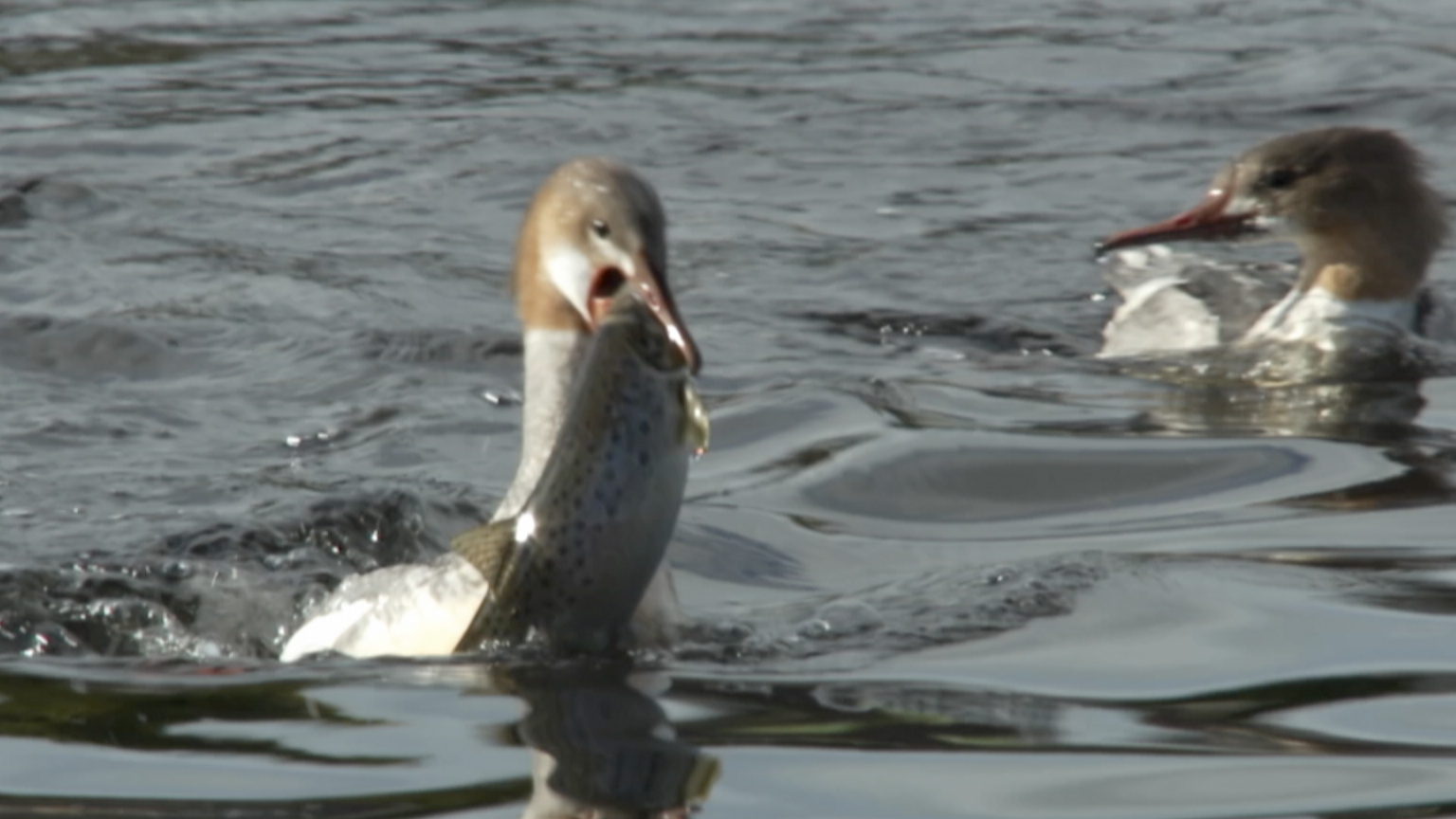
Goosander ducks are phenomenal fishers
However, the calls for a cull are "unnecessary", according to one bird conservationist.
Former BTO engagement officer in north Wales Kelvin Jones said fish-eating birds were the least of the worries on rivers in Wales.
"The problem is the rivers are in such a poor state these days," he argued.
"The rivers themselves need to be cleaned up and then we can look at the problem that possible these fish-eating birds are causing.
"But overall, fish stocks have declined immensely since the eighties, and it is not down to these birds, it's due to other factors in the environment."
Responding to the cull call, Natural Resources Wales (NRW) said it had a duty to both fisheries and wild birds.
It said in addition to licences already issued to control fish-eating birds, it had set up an advisory group to examine the issue, including members from the angling and conservation communities.
"We are now progressing an action plan which is initially confirming or commissioning evidence around fish, the impacts of fish eating birds and the associated control methods currently used in Wales," said the body's freshwater fisheries specialist, Dave Charlesworth.
"We are working hard to ensure an appropriate and balanced approach - NRW has both a legal duty to enhance and improve fisheries in Wales and also to uphold the legal protection provided for the protection of wild birds, including cormorant and goosander, their eggs and nests."
Related topics
Related internet links
- Published31 October 2017
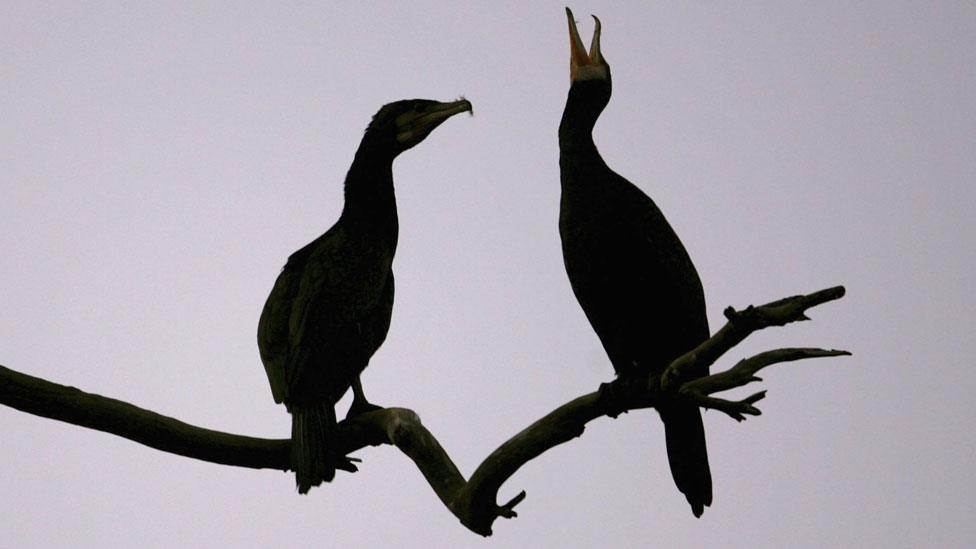
- Published19 October 2017
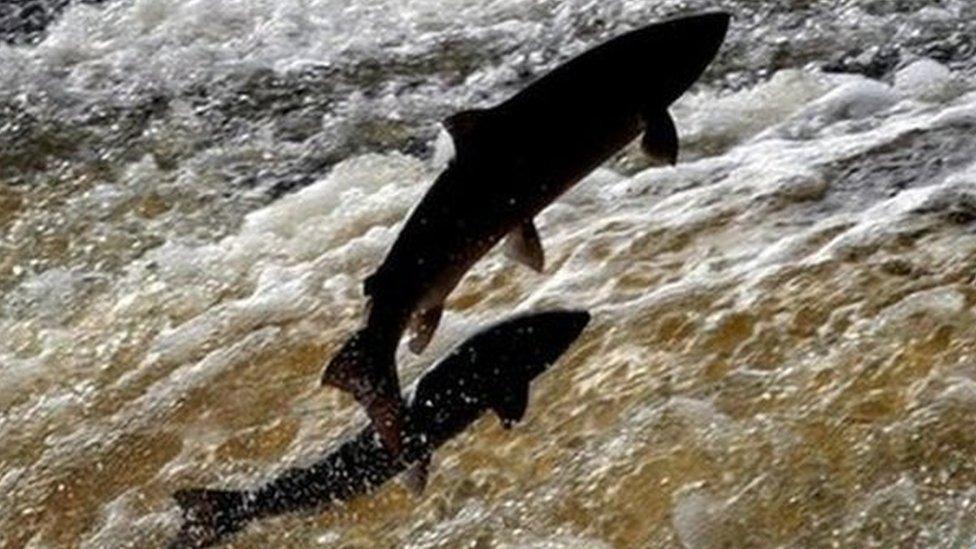
- Published28 June 2023
